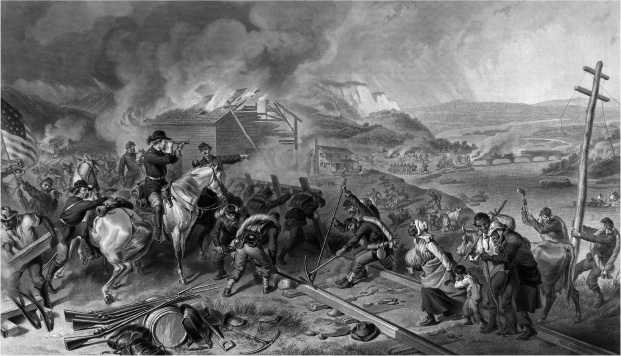The Final Struggles: September 1864 to April 1865The Final Struggles: September 1864 to April 1865 |
When did Sherman first speak of a “march to the sea”? |
In telegraphs to the War Department, Sherman spoke of the need to cut loose from his base, meaning Atlanta. General Hood was leading what remained of the Army of Tennessee into the state of that name, threatening to cut the railroad and telegraph lines. Sherman could, of course, pursue Hood, but to do this meant giving up the 150 miles of turf he and his men had fought so hard to win. Much better, Sherman declared, to ignore Hood and strike out for the Atlantic coast.
Doing so would remove Sherman from communications as well as supplies, but he was confident his hard-bitten veterans could live off the land and that in doing so they would “make Georgia howl.” Given that Georgia had over one million inhabitants, the 70,000 men of Sherman’s army would not suffer, he declared; instead, they would take what they needed, leaving the rebels to suffer during the winter.

In his “march to the sea,” General Sherman burned everything in his wake to assure the Confederates could not use the land after Union troops had passed through. The “scorched earth” tactic was quite controversial for the harm it did to average Southern citizens.
